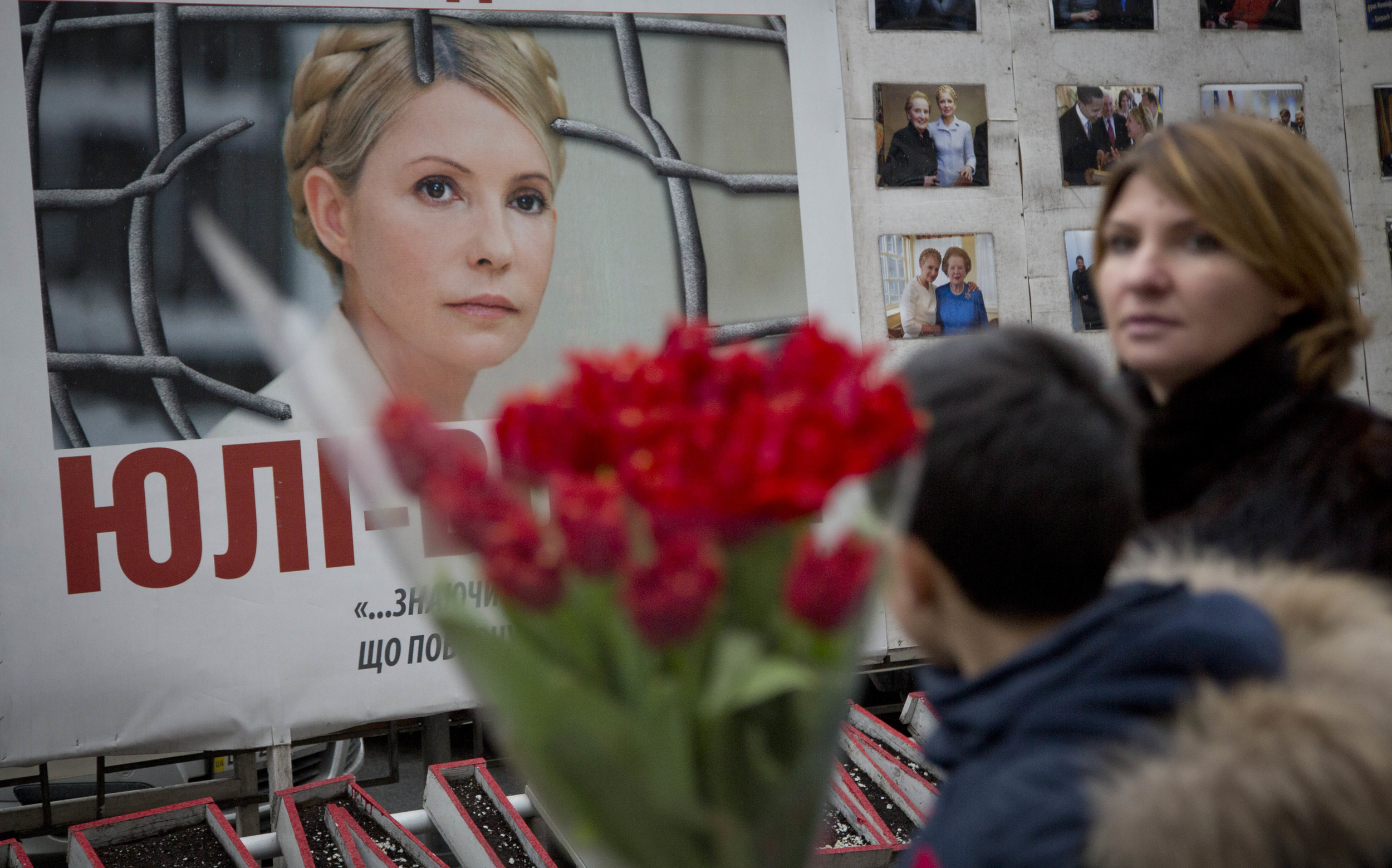Don’t get too excited about Yulia Tymoshenko – or her Syrian counterparts
written for The Telegraph, 22 February 2014

Last month I met Ahmad Tu’mah, the Interim Prime Minister of Syria – that is to say, the leader in exile of the rebels’ international Syrian National Coalition, the holder of a mythical title in an imaginary state. As I watch crowds gather for a glimpse of Yulia Tymoshenko, the former prime minister of the Ukraine, one of Tu’mah’s sentences strikes me. He’d been asked about the Russian-brokered deal to neutralize Assad’s chemical weapons. He snorted at the idea that Russia could be a partner for peace. “That dirty deal is so morally corrupt”, he said, “that its only logical conclusion is that Assad will win the Nobel peace prize”.
What do Tu’mah and Tymoshenko have in common? In a word, Putin. Both have, in their glory days, represented the fight of a people against a Russian-backed President, Tu’mah in the early days of the Syrian Civil War and Tymoshenko back in the Orange Revolution of 2004. But today, they are both figures on the sidelines, elite figures for Western diplomats to deal with, but like the “community leaders” eternally popping in Britain, speaking for no one but themselves.
Tymoshenko is a telegenic figure, whom we’ve all heard of in the West – and it’s true that her release signifies the collapse of her old rival, Victor Yanukovych, who in his determination to make her suffer shrugged off the Western diplomats’ (verbatim) explanation that he’d come to resemble a character from Game of Thrones. I argued with some fury that British officials should not attend Fifa 2012 matches in the Ukraine while she still rotted in jail. Only among barbarians is each change of government marked by the new rulers chopping off the heads of the old ones, which is why we should be cautious about calls to try elected leaders like Bush or Blair for war crimes. If each PMQs was haunted by the shadow of opponents throwing each other into dungeons, we’d be ruled by cowards or control-freaks. So the release of Tymoshenko certainly does feel like a heaven-sent sign of political civility returning to the Ukraine.
But the Euromaidan protests had nothing to do with Yulia Tymoshenko. As Charles Crawford wrote earlier this week, the Ukraine’s unrest is fundamentally economic. And as one of the richest women in the Ukraine, Tymoshenko has never been much of a populist heroine.
Before she entered politics, her UESU company controlled much of the country’s gas supplies – which trained her well for negotiating with the Russians, from whom she piped gas into the Ukraine. Her move to become Minister for Fuel and Energy was a bit like making Richard Branson Minister for Airline Contracts. Make no mistake, there is much to be admired in her struggle against Russia’s expansionist designs in Eastern Europe. But a protestor in Independence Square, complaining that the average worker’s salary has fallen to a third of that in Poland, is going to feel little affinity for Tymoshenko’s life of limousine cavalcades and flunkeys. Many on the ground are expressing real anger at the thought of Tymoshenko trying to hijack their revolution.
With the announcement that she’ll run for the Presidency, it looks like Yulia Tymoshenko isn’t going anywhere quietly. Much depends on her health, which her family say has suffered during her imprisonment. But amid a protest movement which is largely populist, she’ll struggle to stay relevant. In this she largely resembles those Syrian opposition figures, floating around the international circuit. When I Skype to contacts inside Syria, particularly in war zones like Aleppo, they talk of their admiration for local heroes, but few had heard of Ahmad Tu’mah.
So events in the Ukraine and Syria should remind us of that old cliché, that it’s hard to find for the West to find a leader who speaks for people on the ground. But it should also remind us of the scale of Russian aggression – and our failure to act.
Until this week, Assad and Yanukovych sat in palaces 1,200 miles away from each other, but as the South Ossetians will tell you, even they don’t mark the full extent of Putin’s imperial reach. Unlike Syria, however, the Ukraine had neighbours who weren’t prepared to allow chaos on their border. Yesterday’s negotiations marked a huge coup for Polish democracy, forcing Western nations such as France and Spain to recognise its clout in contemporary Europe. Already, opposition leader Viktor Klitschko is demanding a March date for elections, while Yanukovych’s allies talk of balkanization, with the Russian-facing regions forming a new state with a capital in Kharkiv, former capital of the old Ukrainian Soviet Socialist Republic. So yes, we really are stuck in an Eastern European timewarp. But it is clear that the presence of Polish and German negotiators made it absolutely clear that the status quo could not continue. At the very least, they made Yanukovych talk.
But back in Syria, two years ago, where were the regional partners for piece? Jordan? Turkey? To avoid the next Syria (and there will be one), we need stronger Middle Eastern diplomatic institutions. Ones that don’t invoke the mockery of Tu’meh’s snipe at the Nobel. We need to allow Muslim nations to take the initiative and run negotiations. But most of all, we all have to start standing up to Russia. Because if we can’t do that, how on earth are we ever going to stand up to Iran?




